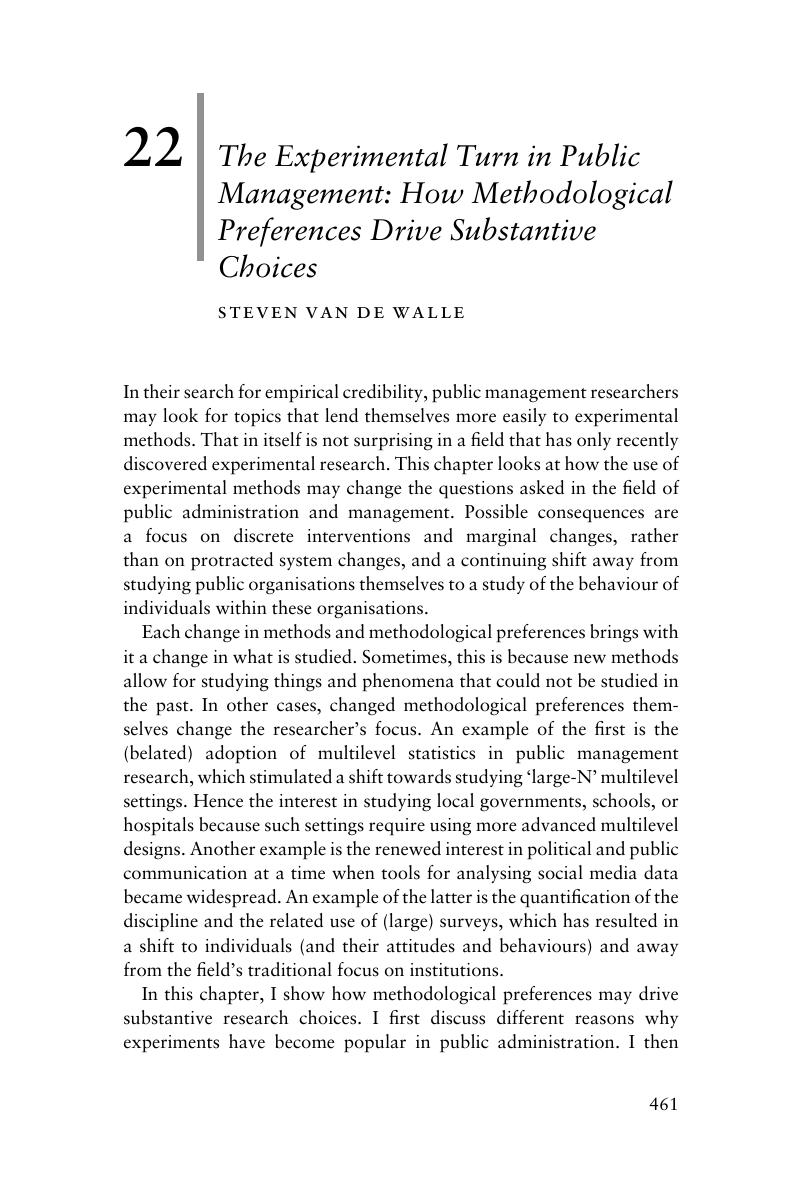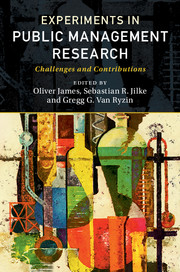Book contents
- Experiments in Public Management Research
- Experiments in Public Management Research
- Copyright page
- Contents
- Figures
- Tables
- Contributors
- Preface and Acknowledgements
- Part I Context
- Part II Methods
- Part III Substantive Contributions
- Part IV Issues and Implications
- 21 Replication of Experimental Research: Implications for the Study of Public Management
- 22 The Experimental Turn in Public Management: How Methodological Preferences Drive Substantive Choices
- 23 Changing How Government Works: The Transformative Potential of an Experimental Public Management*
- 24 Conclusions – Towards an Experimental Public Management
- Appendix Recommended Reporting Guidelines for Experiments in Public Management, a Checklist1
- Index
- References
22 - The Experimental Turn in Public Management: How Methodological Preferences Drive Substantive Choices
from Part IV - Issues and Implications
Published online by Cambridge University Press: 27 July 2017
- Experiments in Public Management Research
- Experiments in Public Management Research
- Copyright page
- Contents
- Figures
- Tables
- Contributors
- Preface and Acknowledgements
- Part I Context
- Part II Methods
- Part III Substantive Contributions
- Part IV Issues and Implications
- 21 Replication of Experimental Research: Implications for the Study of Public Management
- 22 The Experimental Turn in Public Management: How Methodological Preferences Drive Substantive Choices
- 23 Changing How Government Works: The Transformative Potential of an Experimental Public Management*
- 24 Conclusions – Towards an Experimental Public Management
- Appendix Recommended Reporting Guidelines for Experiments in Public Management, a Checklist1
- Index
- References
Summary

- Type
- Chapter
- Information
- Experiments in Public Management ResearchChallenges and Contributions, pp. 461 - 475Publisher: Cambridge University PressPrint publication year: 2017
References
- 5
- Cited by



